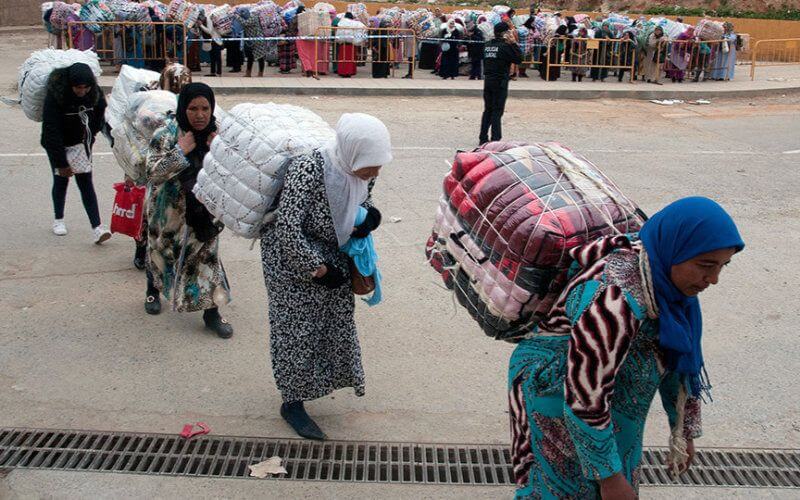Border Closure Leaves Thousands of Moroccan ’Mule Women’ Jobless in Ceuta

The closure of the Ceuta border crossing, by unilateral decision of Morocco, is already having a negative impact on the Moroccan population. About 3,000 goods carriers (mule women) find themselves unemployed due to the decline in trade in the town of Fnideq, as well as in the Spanish enclave.
Since this decision was made, the economy between Morocco and Ceuta has slowed down. The "mule women" are the first to suffer. The situation persists, much to the dismay of thousands of goods carriers.
However, "employment opportunities are becoming increasingly scarce in this field, as no strategic socioeconomic plan has been developed to integrate and promote the employment of women," said Nadia Nair, a professor at the University of the city of Tétouan, and a specialist in gender and human rights issues, in an interview with El Diario.
On October 9 last year, Morocco had unilaterally decided to close the border crossing, giving access to the Sebta enclave, in order to combat smuggling. Nabyl Lakhdar, Director General of Customs, explained to L’Économiste that smuggled goods were undermining the Moroccan economy "by destroying the productive sector".
Related Articles
-

Ex-Terror Convict Urges Spain to Arm Separatists Against Morocco
3 September 2025
-

Foreign Buyers Flock to Spanish Coastal Rentals: Germans Lead Surge in Balearic Islands
31 August 2025
-

Catalan Police Deploy Stealth Units to Thwart Highway ’Flat Tire’ Scam Targeting Tourists
30 August 2025
-

Spain’s Military Readiness Under Scrutiny as Morocco Eyes Ceuta and Melilla
27 August 2025
-

Ferry Collision Disrupts Algeciras Port: Marhaba Operation Faces Setback
26 August 2025